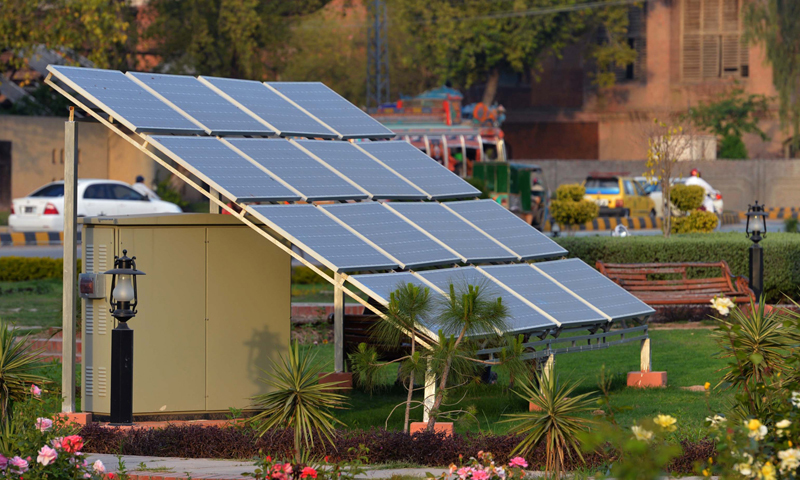
As electricity costs continue to rise and environmental concerns grow, more homeowners in Islamabad are turning to residential solar system setups as a sustainable energy solution. With an average of over 300 sunny days per year, Islamabad is an ideal location for harnessing solar power to reduce energy bills, achieve energy independence, and contribute to a greener planet.
1. Benefits of Residential Solar System Setup in Islamabad
1.1 Reduced Electricity Bills
One of the most compelling reasons to install a solar system is the significant reduction in electricity costs. By generating your own electricity, you can reduce your dependency on the national grid and lower monthly bills.
1.2 Environmentally Friendly Energy
Solar energy is a clean, renewable resource that reduces carbon footprints. Unlike fossil fuels, solar power does not emit harmful greenhouse gases, making it a sustainable solution for homeowners in Islamabad.
1.3 Increased Property Value
Homes equipped with solar panels have higher property values and are more attractive to buyers. Potential homeowners prefer houses with lower energy costs and sustainable power solutions.
1.4 Energy Independence
By investing in a solar energy system, you can reduce reliance on power companies and avoid frequent power outages, ensuring uninterrupted electricity for your home.
1.5 Government Incentives & Net Metering
The Pakistani government offers incentives such as net metering, allowing homeowners to sell excess energy back to the national grid, providing additional savings and financial benefits.
2. Types of Residential Solar Panels
Choosing the right solar panels is essential for efficiency and longevity. Here are the three main types:
2.1 Monocrystalline Solar Panels
- Efficiency: 18-22% (most efficient)
- Lifespan: 25-30 years
- Cost: Higher than other types
- Best for: Homeowners looking for maximum efficiency in limited space
2.2 Polycrystalline Solar Panels
- Efficiency: 15-18% (moderate efficiency)
- Lifespan: 20-25 years
- Cost: More affordable than monocrystalline
- Best for: Budget-conscious homeowners
2.3 Thin-Film Solar Panels
- Efficiency: 10-12% (least efficient)
- Lifespan: 10-20 years
- Cost: Most affordable
- Best for: Flexible installation options, such as curved surfaces
3. Choosing the Right Solar Inverter
A solar inverter converts DC power (generated by panels) into AC power (used in homes). The three types include:
3.1 String Inverters
- Cost-effective
- Best for small residential setups
3.2 Microinverters
- Higher efficiency
- Recommended for homes with shaded areas
3.3 Hybrid Inverters
- Allows battery storage
- Ideal for off-grid or backup power
4. Solar Battery Storage for Homes
4.1 Lead-Acid Batteries
- Affordable but requires regular maintenance
- Best for short-term energy backup
4.2 Lithium-Ion Batteries
- Higher lifespan and efficiency
- Best for long-term energy storage
4.3 Flow Batteries
- Long-lasting with high capacity
- Best for large energy consumption
5. Installation Process for Residential Solar System Setup in Islamabad
Step 1: Site Assessment
A professional inspects your roof condition, angle, and shading to determine feasibility.
Step 2: System Design & Permits
Customized system layout, government approvals, and net metering applications are processed.
Step 3: Solar Panel Installation
Solar panels are mounted using high-quality racks and brackets to maximize sun exposure.
Step 4: Wiring & Inverter Connection
Electrical connections are established, and the solar inverter is installed.
Step 5: System Testing & Activation
The system undergoes testing to ensure optimal performance before activation.
6. Maintenance & Care of Your Solar System
6.1 Regular Cleaning
Dust accumulation can lower efficiency. Clean panels every 2-3 months.
6.2 Performance Monitoring
Most inverters come with monitoring apps to track daily power generation.
6.3 Professional Inspections
Annual maintenance checks ensure your solar system operates efficiently.
7. Cost of Residential Solar System Setup in Islamabad
7.1 Cost Breakdown
- 1kW System: PKR 150,000 – 200,000
- 5kW System: PKR 600,000 – 800,000
- 10kW System: PKR 1,200,000 – 1,500,000
7.2 Factors Affecting Costs
- Type of solar panels
- Battery storage
- Installation complexity
- Government subsidies
Conclusion
Switching to a residential solar system setup in Islamabad is a wise investment for homeowners looking to cut electricity costs, reduce carbon footprints, and achieve energy independence. With government incentives, improved solar technology, and reliable installers, now is the best time to make the shift.
8. FAQs About Residential Solar System Setup in Islamabad
1. How long do solar panels last?
Most solar panels last 25-30 years with proper maintenance.
2. Can I install solar panels on a flat roof?
Yes, adjustable mounting structures are used for flat roofs.
3. Is net metering available in Islamabad?
Yes, homeowners can sell excess energy back to the grid.
4. Do solar panels work in cloudy weather?
Yes, but energy production is slightly lower compared to sunny days.
5. How much energy does a 5kW solar system generate?
A 5kW system produces 20-25 kWh/day, enough for an average home.
6. Do I need a battery with my solar system?
Only if you need backup power for outages.
7. What is the installation time for a residential solar system?
It typically takes 1-3 days for full installation.
8. Is solar panel maintenance expensive?
No, it mainly involves cleaning and occasional professional checks.
9. Will solar panels damage my roof?
No, when installed properly, they protect your roof from weather damage.
10. What warranties come with solar panels?
Most panels have a 25-year performance warranty.